Rabbi Mordechai Levi: 'I Wanted Every Jew to Experience the Sweetness of the Torah'
Rabbi Mordechai Levi initiated the chavruta project in Rehovot two years ago, and since then it has been growing. What attracts nearly 100 young men to study? Who are the rabbis teaching them? And what convinced a secular young man, a Meretz supporter, to join the study group?
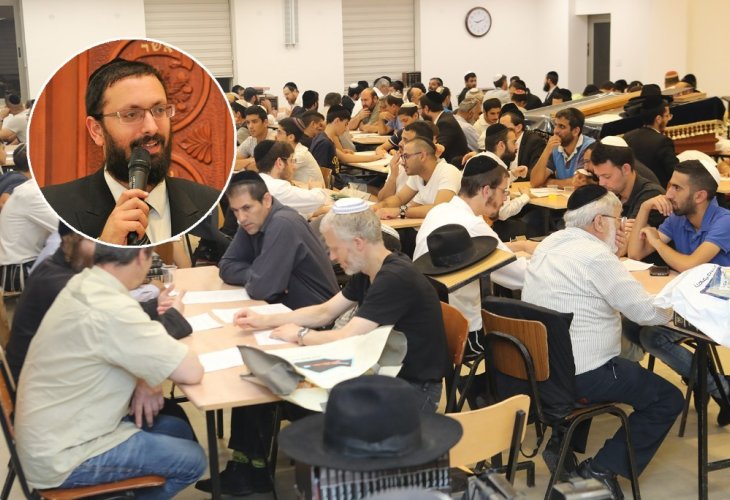 Rabbi Mordechai Levi
Rabbi Mordechai LeviAt first glance, the scene seems completely surreal. Nearly 100 young people, who do not appear to be yeshiva students, are sitting in a synagogue with open Talmuds, diligently studying. Each one of them is paired with a bearded rabbi, deeply immersed in study. The rabbis, with their traditional ultra-Orthodox appearance, sway back and forth with devotion, while the young men are captivated, listening intently to every word.
Does it sound unbelievable? Rabbi Mordechai Levi, a young rabbi residing in Rehovot and the founder of this extraordinary project, explains that the initiative was born several years ago thanks to home study sessions for young people and Torah classes he conducted in synagogues across the city, along with similar classes by his friend, Rabbi Yonatan Azuelos.
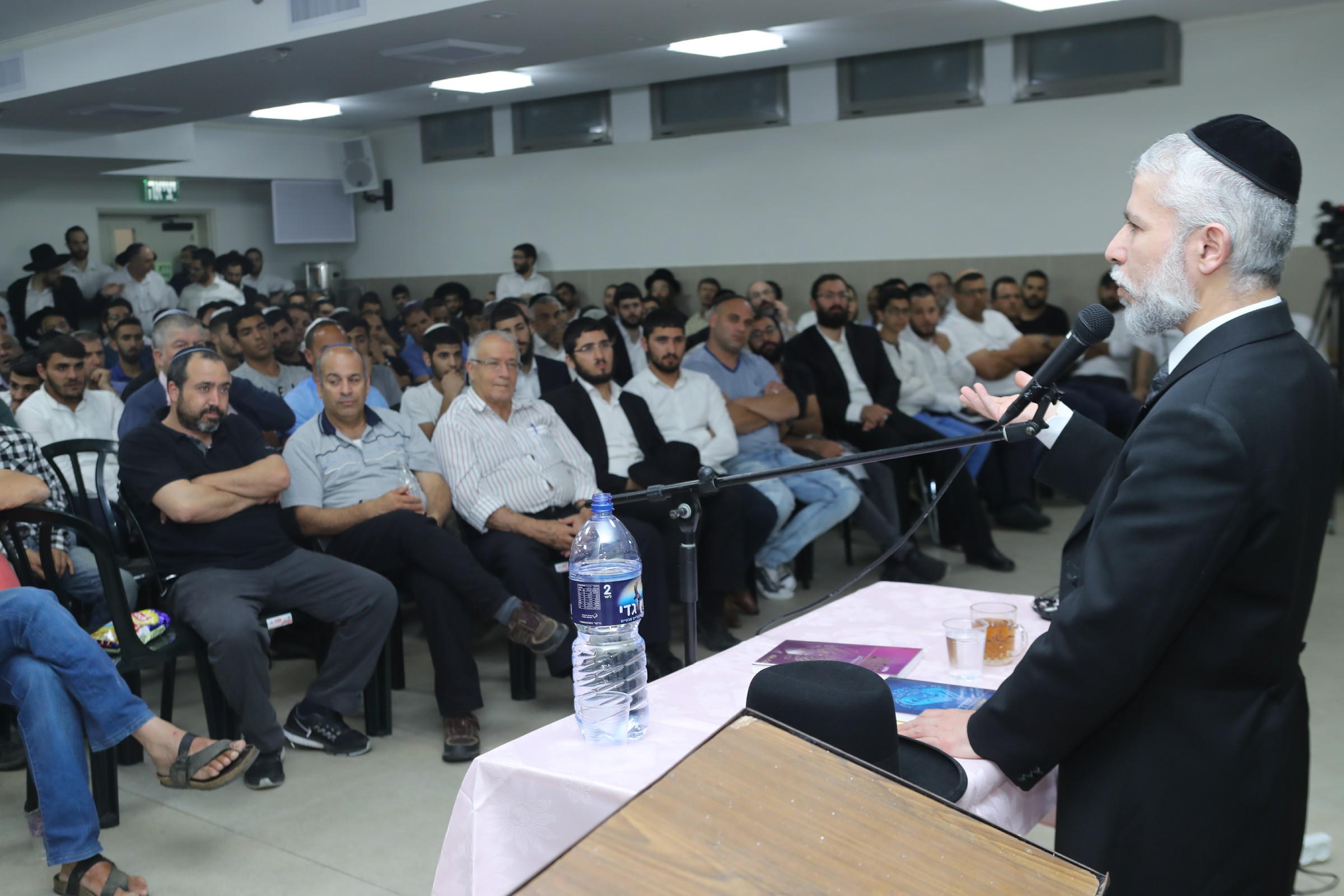
The Rabbis Join the Mission
Rabbi Levi recounts, "For a long period, the two of us delivered such classes, and there was significant interest from various backgrounds, especially among young people. Eventually, we decided to take the initiative a step further and establish a chavruta learning environment in a study hall. It was important to us to let them taste the sweet flavor of the Gemara, beyond the weekly lectures, and truly expose them to the halacha and the sweetness of the Torah in depth.
We needed a large space to accommodate the activity. Rabbi Tzvi Schwartz shlit"a assisted us significantly in this, and we are deeply grateful for it."
Who are the rabbis selected for this mission? Rabbi Levi explains that he and his friend managed to gather around 30 of the finest rabbis in Rehovot initially. "The activity is entirely voluntary for the rabbis," he emphasizes. And if you're wondering what motivates the rabbis to dedicate their time, he wants to clarify one thing: "In our city, there are rabbis who have spent their entire lives in yeshivas or kollels and have not been exposed at all to the world beyond the street, to our brothers who are so spiritually down. But as soon as they meet them, they recognize the great potential here and understand the immense opportunity.
The truth is, when I started to establish the project, I went rabbi by rabbi down the street and also made personal phone calls to rabbis I heard about. I explained to them what I see in my classes—how secular young men come to my classes, and after two years, they start observing Shabbat, or youth who didn't even have a bar mitzvah, and suddenly their eyes are opened, discovering the world of Torah. We have boys who were addicted to drugs and we helped them out, some came with no background and were blessed to marry in a traditional Jewish wedding. What's helped them in all this? Only the holy Torah and the attentive ear that we lend them. It transforms their lives. Once I explained these things to the rabbis, I didn't need to continue. Some initially doubted themselves, thinking they couldn't truly influence these young men. They also feared they'd need expertise in the field of outreach, which they're not experts in, and what would they do if the boy starts asking questions about faith or challenges them with demands for scientific or Torah proofs? But I explained that this is not about outreach, it's purely about learning Gemara. As a result, you can now see approximately 30 rabbis sitting and learning Gemara with teenagers. These young men might have a nose ring, a strange haircut, and flip-flops, and when they sit next to the bearded rabbi, it seems impossible. But the learning together is amazing, as the boys ask, are curious, and want to know, and our rabbis are just the right address for them.
The learning is intended for everyone who wishes to participate and is suitable for people of all ages and backgrounds—religious, secular, traditional, or those becoming more observant. Some are more advanced, and some are sitting in the study hall learning Gemara for the first time. Everyone feels this is their spiritual home."
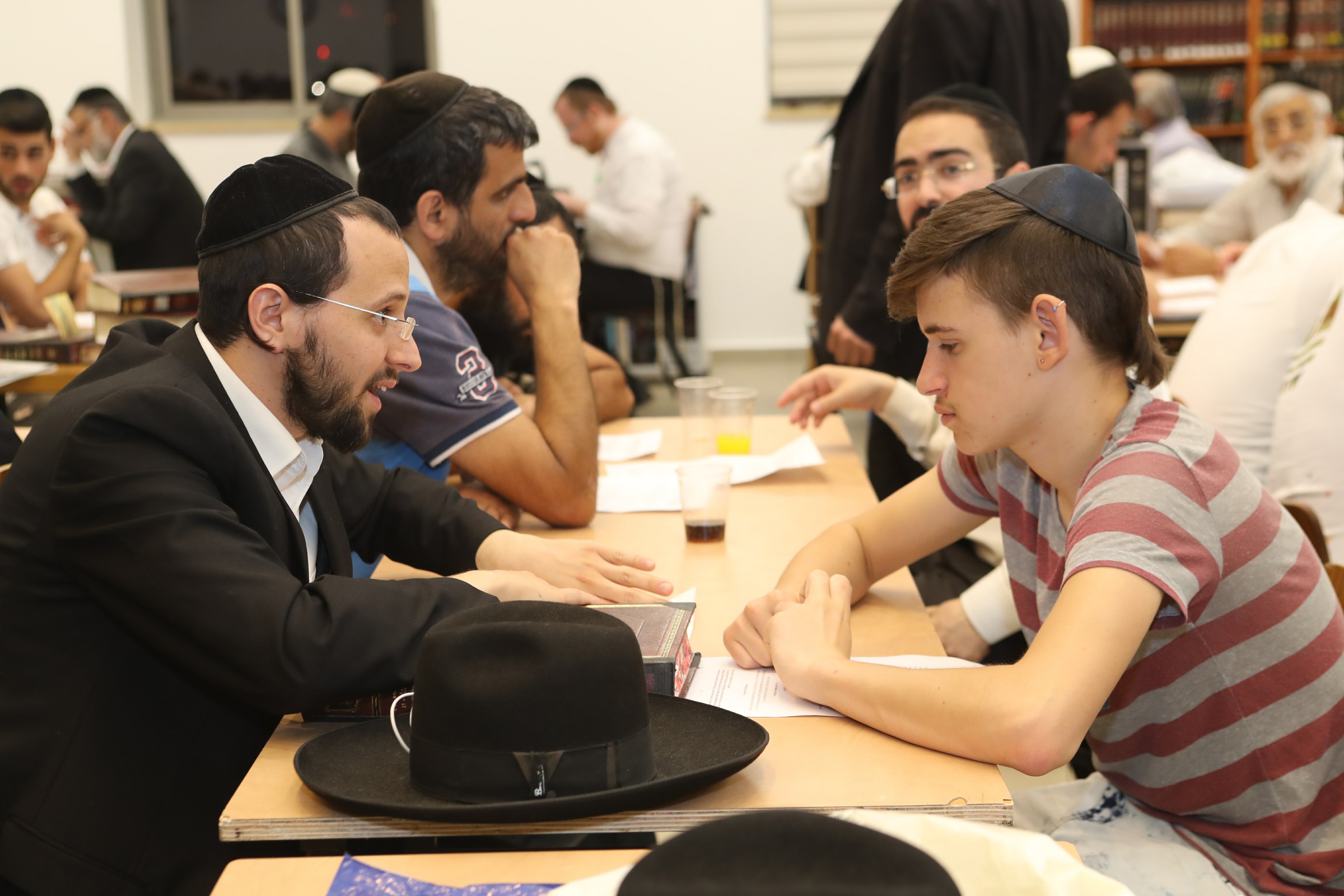
Rabbi Levi notes that over time, they decided to upgrade the chavruta project, so once every three weeks, they make sure to host a joint project where everyone learns the same topic, followed by a short discussion on the subject learned. "I usually try to ensure the topic learned is relevant," he explains, "and it captivates the participants, for example when they discuss Chametz laws during Pesach, or gifts to the needy on Purim, or when I recount a recent story and we begin to analyze it from the Gemara's perspective. I also usually present a question, and it’s amazing to see how someone immediately voices a different opinion, followed by a third person who strengthens another perspective. Thus they begin to debate and delve into Torah discussions with enthusiasm. Sometimes the session concludes with joint dances where we rejoice in the joy of Torah study. Boys with ponytails, earrings, and tattoos can dance arm in arm with a rabbi with curled sidecurls, and the circle is large, bringing the evening to a close."
In some events, he adds, a guest lecturer attends, which is a highlight. "We’ve already had visits from Rabbi Zamir Cohen, Rabbi Yitzchak Fanger, and other esteemed rabbis. Naturally, when visiting rabbis arrive, additional people from the area join the chavruta project, and the women's section also opens, creating a large audience."
"The Rehovot Municipality has also entered the picture, greatly assisting in bringing top lecturers to the project and hosting large conventions. Currently, there are over 20 chavrutas meeting once or twice a week to study a Gemara tractate, in addition to an engaging evening with a relevant topic, lecture, and talk once every three weeks."
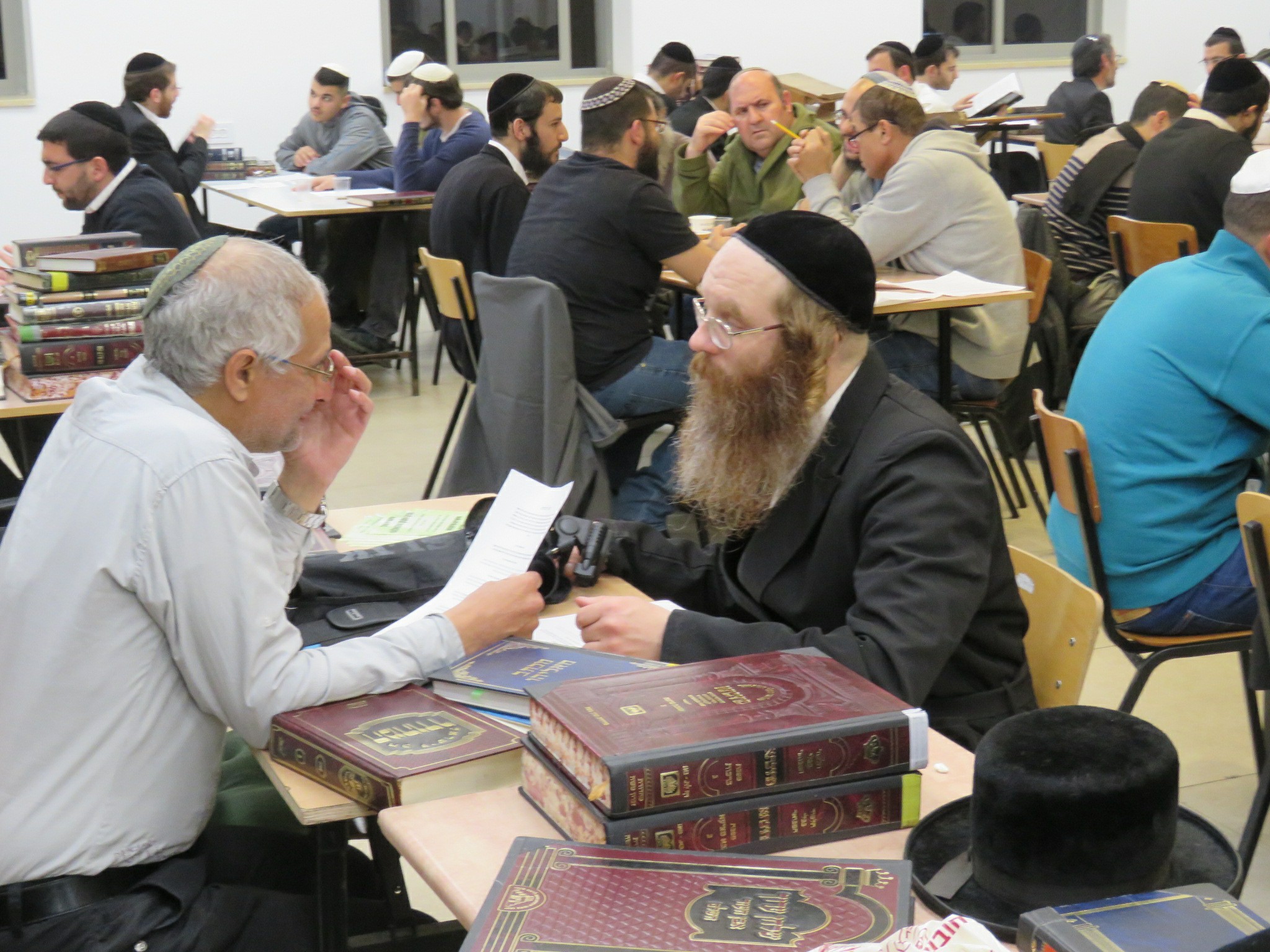
'They Feel the Outside World is Empty of Meaning'
Rabbi Levi notes that when they started the project, they didn’t foresee where it would lead, but in the past year and a half, they also tasted the sweet fruits: "Within a year and a half, seven young men have joined holy yeshivas. These are young men, some right after the army and some at the age of 16 or 17, who when they joined, no one could have dreamed where they would go."
But what drives the young men to join the project? Do you offer them scholarships or incentives?
"No, it's certainly not about financial compensation. Of course, there are refreshments and drinks, but the main things driving them are natural curiosity and a desire to find something valuable and interesting. They simply feel that their current lives are shallow, and they see with their own eyes how the Torah positively impacts them, pulling them out of the least desirable places and giving them satisfaction."
The great success in the classes also led to the bar mitzvah project, about which Rabbi Levi speaks enthusiastically: "We started this project about four years ago. Many boys from non-religious schools do not experience a traditional bar mitzvah. Some parents do not want to buy them tefillin or hold a bar mitzvah week in a synagogue. So we decided to invest in this area as well and teach the children of Israel Torah reading and concepts in Judaism and assist with everything related to the bar mitzvah. It started when a completely secular person approached me, someone who didn’t even fast on Yom Kippur, but he very much wanted his son, who was turning 13, to be called up to the Torah. When he approached me, he asked me to teach the child to be called up to the Torah, but I decided to try and teach him the cantillation as well, and a bit more. Blessed be Hashem, we formed a strong connection, and this boy stays in touch with me to this day. We studied large sections of Genesis and Exodus, and we also studied Mishnah Berurah together, and as a result of the connection formed between us, his younger brother also studied with me, and both his cousins came to study. Thus, the bar mitzvah project was essentially born, based mainly on each friend bringing another friend. Most of the boys who come to me to study for their bar mitzvah are completely secular, but usually, the relationship with them continues beyond that, and they receive many ideas."
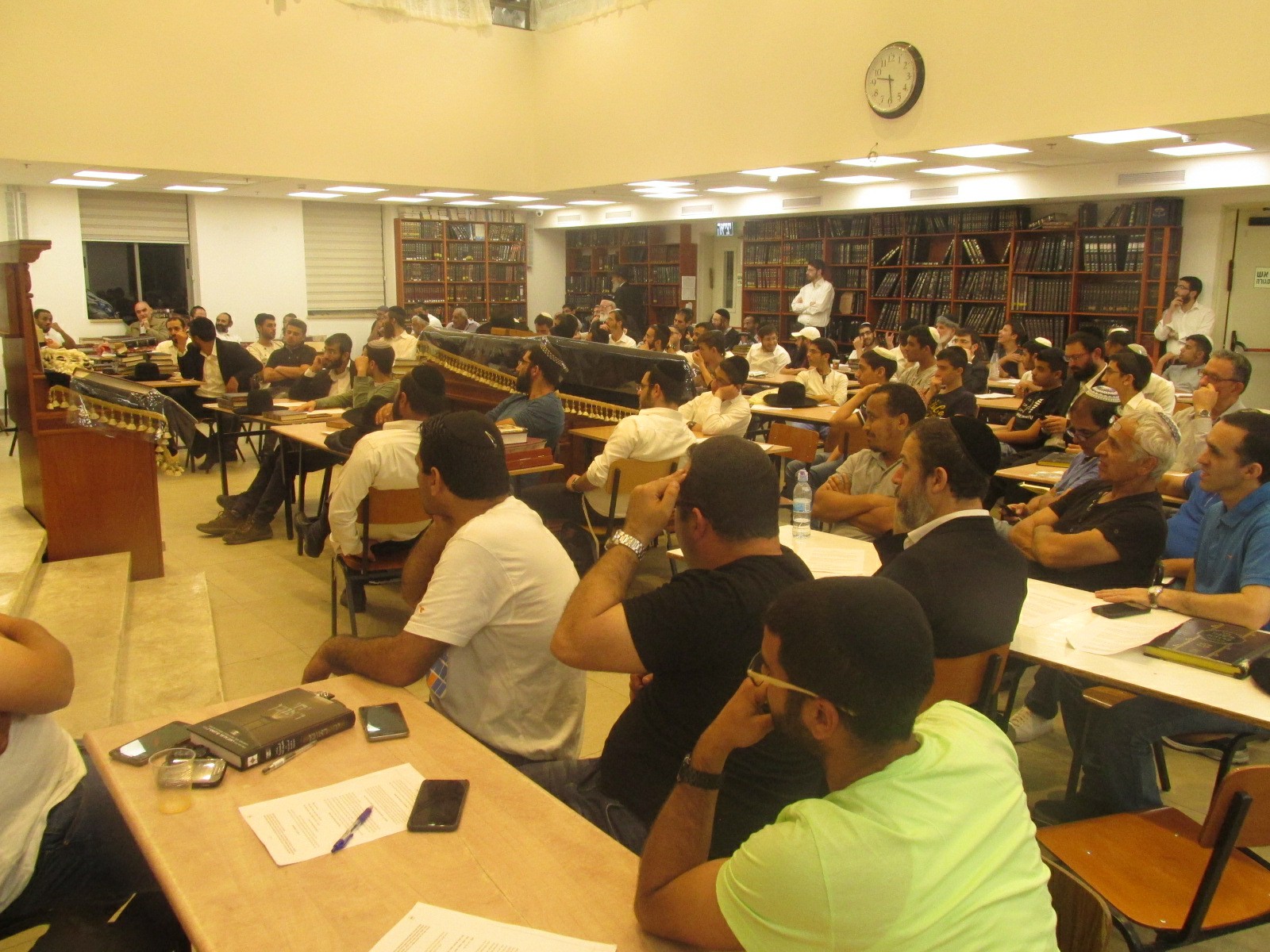
And aren’t the parents worried about it?
"No, because I usually continue the relationship only when I see willingness and thirst from the child and the parents' agreement. Often parents have asked me to maintain the relationship with their children because it advances them in many areas of life, mainly in seriousness and values that do not come from schools. Sometimes the closeness that comes from one bar mitzvah, from a pleasant demeanor, care, and genuine and sincere relationship, is greater than can be achieved through a Torah class.
By the way, the aliyah to the Torah often takes place when the parents arrange in a city synagogue, and then Rabbi Levi also helps them organize a large minyan, experience the ceremony of opening the Torah ark, and honor the many guests. "Often this leads to a very close relationship that is maintained with the family."
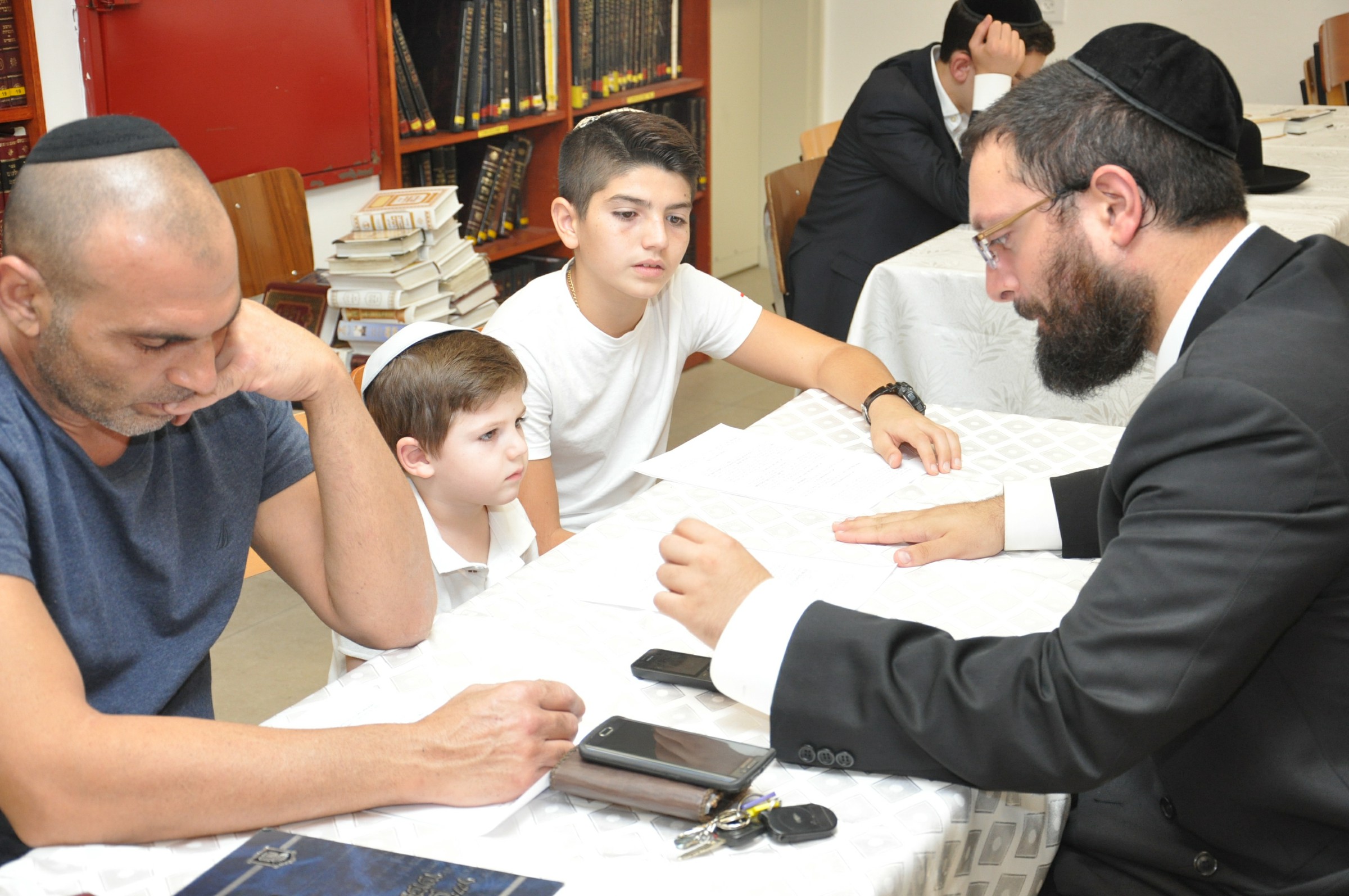
'The Boys Were Shattered'
Rabbi Levi cannot resist sharing a special story he encountered along the way: "A few years ago, a group of young people, graduates of a secular high school in the city, approached me. They were shocked following an incident where one of their friends ended his life. This deeply shook them, as it concerned one of the most successful boys—it financially secured, having successfully completed his army service, and being three months before a wedding. It shattered them to pieces. They did not understand how it was possible for someone who has so many reasons to be happy in life to decide to end it. As a result, they searched for answers and came to me with a request for a class."
Rabbi Levi mentions that since then, a weekly class has been held at the home of one of the friends, and at some point, they decided that each time a new home should host among their group, in addition to the weekly class. "These boys are very happy that the class is held in their homes. Each one has a chance to host us once every few months, and then they take the opportunity to prepare refreshments and invite all their surrounding family, extended family, and even neighbors and friends. Consequently, our class expands more and more, and the scope of activity grows.
"It gives so much satisfaction," concludes Rabbi Levi, "because the city of Rehovot is an amazing city, with lots of returnees to Judaism and people interested and willing to hear about Judaism. The feeling is that over the years they were looking for a way to draw closer, and now it is our privilege to enable them."
The chavruta project takes place at 31 Zecharia Madar St, Rehovot
Weekly classes in Rehovot: Every Monday at 20:15 at Ohad Israel Synagogue (48 Migdal Galil St, Rehovot) and every Thursday at 20:00 at Darchei Emunah Spiritual Center (2 Wiener, Rehovot).
For contact and joining the project: eladu100@gmail.com

